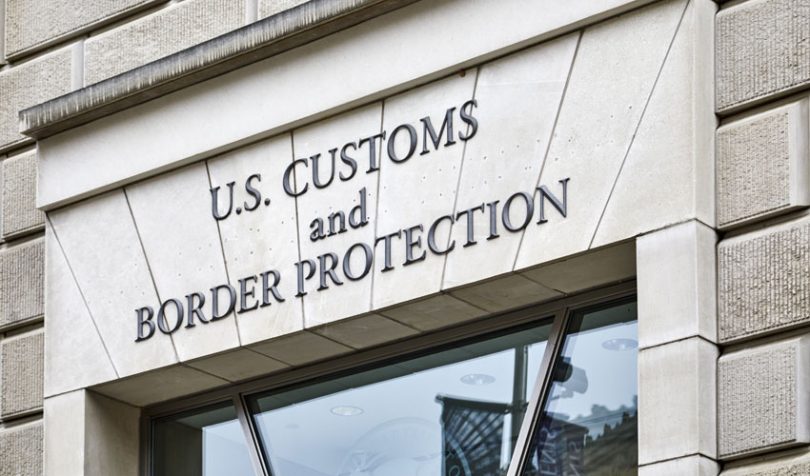This month’s report from the U.S. Commercial Customs Operations Advisory Committee (COAC) reveals that the U.S. government is working on blockchain projects for international trade. One of these projects, on intellectual property rights, is slated for live testing this month.
The COAC includes chairs from FedEx, Walmart, and Expeditors International. Walmart’s representative, Barry Baxter, is a co-chair on the emerging technologies group, which has backed blockchain implementation.
The group has recommended the government’s customs arm to encourage blockchain adoption and ensure as many participants as possible get involved. Its report cites facilitation, transparency, and audits as areas customs trade could benefit from.
It looks like Customs and Border Protection (CBP) has already taken some of the advice, as a webpage detailing blockchain projects has been recently added. The COAC report also reveals that a proof of concept has reached the testing stage, and a new blockchain-based system will begin trials this month until September.
This particular system aims to facilitate shipments by storing credentials on a blockchain. Since the identities and licenses of firms would be verifiable, part of the trading process could be automated. Additionally, an interoperable customs system would streamline the currently “fragmented” entry system.
Last year, the CBP tested out another blockchain application for this entry system, focusing on the submission process for cargo complying with the CAFTA/NAFTA trade agreements. It found that the technology allowed for nearly instant communications and eliminated the need for paper-based documentation. In fact, the government agency found no drawbacks in using blockchain.
In the list of proof of concepts, the CBP also hints at an upcoming project for oil traceability. The idea is to use blockchain to track oil from the spigot to importation, tentatively planned for this summer.
Customs for shipping is one of the most active areas for blockchain adoption. In June, it was announced that China had rolled out its own cross border trade system, while in May Saudi customs revealed that it had successfully used blockchain to track a shipment to Rotterdam.







